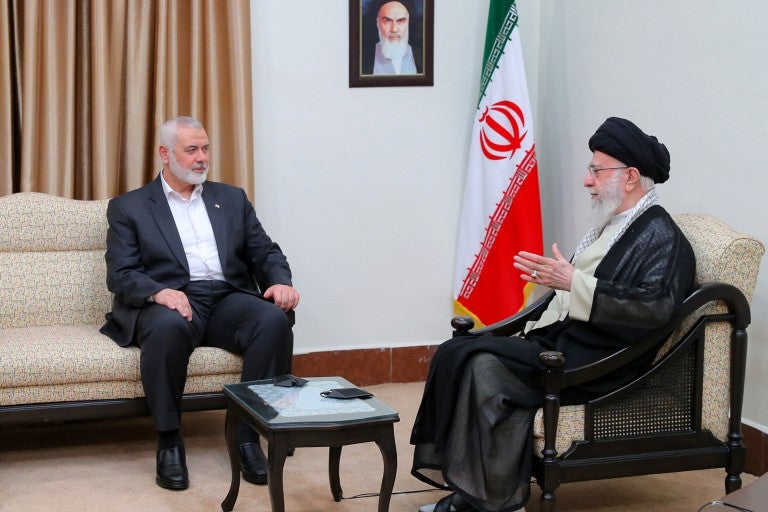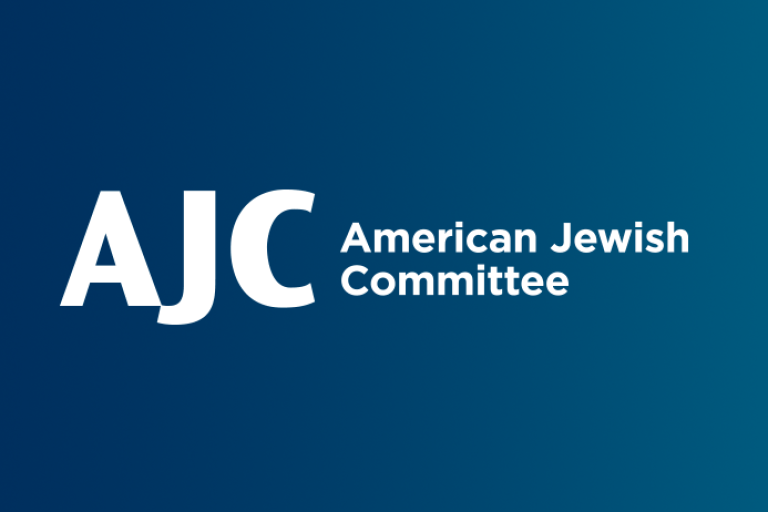May 12, 2020 — Washington, D.C.
The national Latino Jewish Leadership Council (LJLC), convened by American Jewish Committee (AJC), held its first virtual meeting since the pandemic started to discuss the impact of COVID-19 on the Latino and Jewish communities across the United States, and joint actions to address derived domestic and foreign policy challenges . Thirty-five members of the both the national and Texas LJLC participated.
Two Council members, AJC CEO David Harris and former presidential democratic contender and U.S. Housing and Urban Development Secretary Julian Castro, addressed the current conditions and challenges in their respective communities.
“While dealing with the immediate impact of the coronavirus on both the Latino and Jewish communities, we must also consider the implications on concerns that have long topped our shared agenda,” said Dina Siegel Vann, AJC Director of Latino and Latin American Affairs.
LATINO JEWISH LEADERSHIP COUNCIL STATEMENT ON COVID-19
We, members of the Latino Jewish Leadership Council, ever-mindful of the profound and devastating impact of the COVID-19 pandemic on our country and our communities, and recognizing that our nation and the world are at a defining juncture, affirm the following:
• We grieve for the more than 70,000 Americans who have succumbed to COVID-19, and express our sympathy and solidarity with the affected families.
• We salute the first responders, healthcare professionals, and so many other frontline workers who have shown amazing bravery in the face of fear, saving lives and ensuring that we all continue to have access to medical care, pharmaceuticals, food, and other necessities.
• We express our deep concern that, as uncertainty and anxiety rise, prejudice, hatred, and misinformation are being unleashed. Asian-Americans have been targeted. Conspiracy theories, including Nazi references, about the role of Jews in creating or spreading the virus swarm. Latino and other immigrants have encountered suspicion and stigmatization.
• We thank the millions of immigrants on the frontlines who are working to keep Americans safe, healthy, and fed, including physicians, home caretakers, and those cleaning hospital rooms, working at grocery stores, and providing food. Without them, we would all be in much further danger. As the country begins to emerge from the lockdown and the economy starts opening up again, we urge that safe conditions are in place to ensure that their health, and everyone’s health, is protected.
• We note with concern that Latino immigrants and essential workers are disproportionately being impacted by the pandemic in rates of infections, fatalities and economic dislocation. These worrisome trends must be taken into account and addressed within the larger framework of restoring the full health of our nation.
• We support H.R.3545, the National Opposition to Hate, Assaults, and Threats to Equality (NO HATE) Act. This bipartisan bill will improve hate crime reporting through law-enforcement training. It allows for the creation of reporting hotlines, calls for the increase in resources to liaise with affected communities, and promotes public educational forums on hate crimes.
• We endorse the indispensable role the U.S. must play in fostering global cooperation. In our increasingly interdependent world, the COVID-19 pandemic may be a harbinger of this century’s escalating and universal threats to public health and environmental safety. As such, it should dispel false notions that global problems – from novel pathogens to terrorism to climate change – can be resolved by national action alone. Above all, they require urgent, thoughtful, fact-based leadership, and the maximum possible international cooperation.
• In an increasingly polarized era, we call upon our political and civil society leaders to act with civility, compassion, mutual respect, and solidarity — and to promote the notion of unity, in other words the belief that we share a common destiny. Our nation's strength and resilience derive precisely from its democratic foundation, spirit of pluralism, and sense of inclusiveness.
Since its establishment in January 2017, the LJLC, comprised of dozens of distinguished leaders from both communities, has worked to strengthen Latino-Jewish cooperation by advocating on issues of shared concern and values. In that spirit, the Council has repeatedly denounced the rise of antisemitic and anti-Latino rhetoric that has too often infected our nation’s political discourse, and promotes stronger ties among the U.S., Latin America, and Israel.


